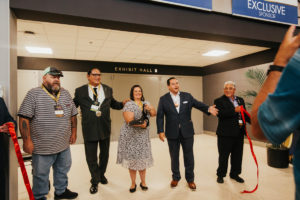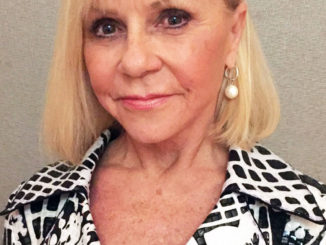 As we turn the corner into a New Year and bid farewell to 2022, the Oklahoma Indian Gaming Association is in full planning mode, pinning down details large and small for our 2023 Conference and Trade Show, which will be held on August 14-16. We are excited to return to Tulsa, to build on the wonderful momentum we enjoyed there. After a couple of very challenging years, it felt extra special to come together and reconnect. It may seem like a long way off, but with dozens of high-caliber sessions, social events, and the John Marley Golf Tournament to plan, not to mention our robust trade show, suffice it to say that we are never not planning.
As we turn the corner into a New Year and bid farewell to 2022, the Oklahoma Indian Gaming Association is in full planning mode, pinning down details large and small for our 2023 Conference and Trade Show, which will be held on August 14-16. We are excited to return to Tulsa, to build on the wonderful momentum we enjoyed there. After a couple of very challenging years, it felt extra special to come together and reconnect. It may seem like a long way off, but with dozens of high-caliber sessions, social events, and the John Marley Golf Tournament to plan, not to mention our robust trade show, suffice it to say that we are never not planning.
Taking a look at the larger picture in Oklahoma and beyond, a key area of focus in 2023 will continue to be innovation in Class II offerings. Multiple Tribal nations have been laying the groundwork for new types of offerings in recent years, and those efforts are coming to fruition. Class II games of today are lively, fun, exciting and ever-changing – an excellent addition to entertainment offerings. Perhaps more importantly, they also offer Tribes a much greater level of autonomy, and no revenue share with the state.
This has always been important, but never more so than now. Politicians have initiated years-long assaults on Tribal sovereignty. The theme rarely varies – politicians want a greater percentage of the Tribes’ Class III revenues to flow into their state’s budgets. This underscores the inherent strength of Class II games as they cannot be a part of that calculus because states have limited regulatory powers over Class II.
 As the legislatures in various states are unable to move forward with viable sports betting bills, for example, and other states enact inconsistent bills in the sports betting arena, Tribal nations are logically allocating resources to developing Class II games to meet the needs of our guests. This meets our guests’ needs – it is a good way to bring them the kinds of new, exciting offerings that they’d like to see, while also leveraging and maximizing the advantages for Tribes.
As the legislatures in various states are unable to move forward with viable sports betting bills, for example, and other states enact inconsistent bills in the sports betting arena, Tribal nations are logically allocating resources to developing Class II games to meet the needs of our guests. This meets our guests’ needs – it is a good way to bring them the kinds of new, exciting offerings that they’d like to see, while also leveraging and maximizing the advantages for Tribes.
The history of Class II gaming is the history of Tribal gaming – Tribes were offering lively, exciting bingo halls to guests as early as the 1970s, with the first facility opened by the Seminole Tribe of Florida. In 1987, California v. Cabazon Band of Mission Indians, which sought to shut down gaming on Tribal lands, made it all the way to the Supreme Court of the United States, which held, as the Cabazon Band had argued, that the state’s authority to regulate gaming activity on Tribal lands fell outside its powers. This, in turn, set the stage for the federal government to pass the Indian Gaming Regulatory Act (IGRA), which defined the three classes of gaming that Tribes could operate and determined that Tribes are the primary regulators of Class II gaming.
New technology and imaginative new types of Class II games will continue to grow, and that’s a good thing. When sovereign Tribal nations exercise self-determination and self-governance, they reinvest in their communities and all the people who live in them.



